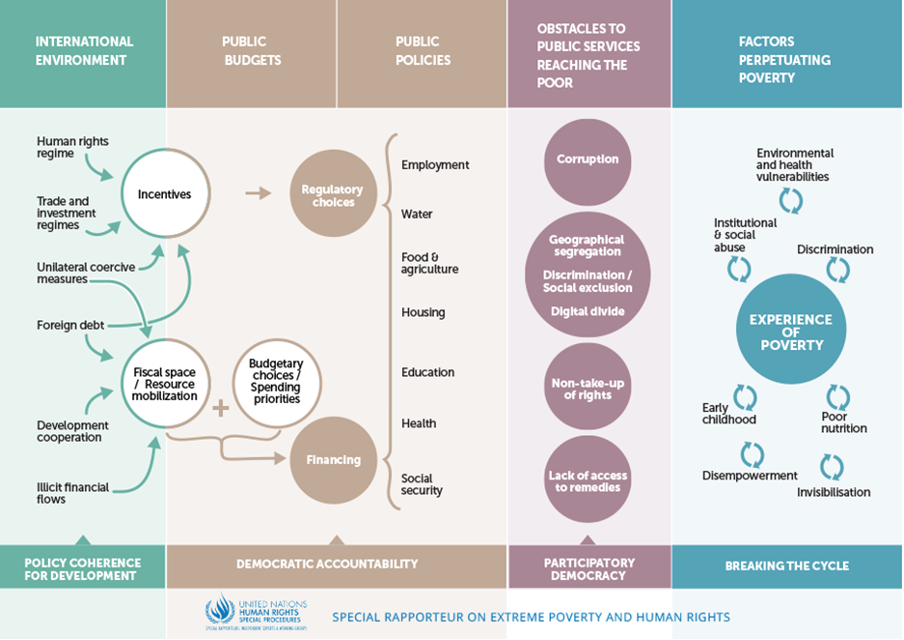Blog by Stacy Ciulik, SI United Nations (UN) Representative, Geneva.
October 2020 saw the annual Human Rights Council Social Forum meet in Geneva with limited capacity due to the COVID-19 pandemic. A place for open and interactive dialogue among stakeholders, this year’s Forum discussed the chosen theme: ‘“Good Practices, Success Stories, Lessons Learned and Current Challenges in Combating Poverty and Inequalities”.
Discussion was guided by a ‘poverty matrix’ – a complex framework that demonstrates the interconnected causal factors of poverty and inequalities. At all micro, meso, and macro levels, the ‘poverty matrix’ highlights the importance for actors to be aware of their role in the fight against poverty.
“The analysis of the ‘poverty matrix’ should lead to a clearer framework of accountability, so no actor can evade its obligations and responsibilities to eliminate poverty and inequality by simply pointing the finger at others”.
Olivier De Schutter, the UN Special Rapporteur on extreme poverty and human rights
By illustrating the interrelatedness between different causes of poverty, the ‘poverty matrix’ should improve accountability. This approach should also identify any feedback loops where poverty breeds poverty.

Two particularly insightful sessions of the 2-day Forum were:
1. Factors perpetuating inequality and intergenerational transmission of poverty, and how to overcome them
The panel discussed the main factors that perpetuate poverty, and measures that can be adopted at a community level to break the intergenerational cycle of poverty.
The intergenerational transmission of poverty continues due to insufficient investment in early childhood, but also to the stigma attached to poverty. In some countries, it may take people born in low-income families nine or even up to eleven generations to reach the mean income in their society. The vicious cycle of political disempowerment and economic marginalisation also subjects people into poverty. Poorly informed and rarely consulted, people in poverty have generally not been a constituency who matter.
2. International Level: The Global Economy, Financing for Sustainable Development and the Right to Development
The panel addressed key interconnected issues in the global economy, including Multilateralism, Globalisation and Global Governance, Foreign Debt, Financing for Sustainable Development and Fiscal Justice, in relation to human rights, in particular, the Right to Development and Economic, Social and Cultural Rights. COVID-19 has served as a reminder that we live in an interdependent world that brings opportunities but also carries risks. It has exposed and exacerbated poverty and inequalities, shedding light on pre-existing conditions – including unsustainable debt and environmental destruction.
The 2020 Social Forum was an opportunity for stakeholders to consider the human rights obligations and responsibilities of all actors, both State and non-State, and through the lens of the ‘poverty matrix’, identified ways on how to break the cycle of poverty.

